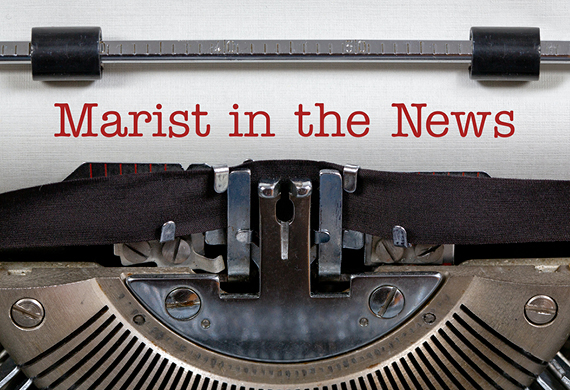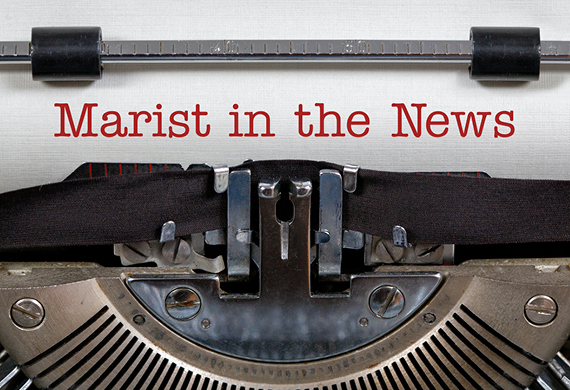Marist Awarded Grants to Expand Digital Resources
Over $230,000 Awarded to the College by the National Endowment for the Humanities and the National Historical Publications and Records Commission.
June 24, 2020—Marist College’s Department of Archives and Special Collections has been awarded two highly competitive federal grants from the National Endowment for the Humanities and the National Historical Publications and Records Commission to enhance digital academic offerings. Together the grants total over $230,000.
“Receiving these grants will allow the College to continue to move forward on its mission of creating more robust digital resources for students and the wider public, including researchers,” said John Ansley, Director of Archives and Special Collections, and the lead writer of both proposals.
The timing on these initiatives is key. “Due to COVID-19, colleges and universities worldwide are turning to digital and online resources in greater ways,” said Ansley. “As we ponder how delivery of higher education will be handled during this global pandemic, there is no question that expanding digital content will be crucial to the future.”
National Endowment for the Humanities (NEH)
This spring, the NEH issued a call for proposals as part of the federal Coronavirus Aid, Relief, and Economic Security (CARES) Act, “recognizing that the nonprofit humanities sector is an essential component of America's economic and civic life,” according to the NEH website. Thousands of institutions submitted proposal and about 10 percent were awarded grant, placing Marist in an elite group.
“Receiving this prestigious grant is a testament to Marist’s leadership in high quality online education and our commitment to the digital humanities,” said Vice President of Academic Affairs Thomas Wermuth. “We’re very proud to have been selected for this forward-thinking funding.”
Marist has been at the forefront of online learning, with many of its degree programs being recognized as Best Online Programs by U.S. News; the College has also been named a Most Innovative School by U.S. News.
Marist’s NEH grant is focused on bringing a digital humanities course (which Ansley established with Marist’s School of Liberal Arts) online. The course, which is part of Marist’s core curriculum, allows students to explore how digital technologies alter our understanding of history, literature, philosophy, religion, and culture. Through the use and development of critical thinking skills, the course explores how to engage with digital media, and the use of digital techniques for research, analysis, and publication.
Dr. Ansley and his team, who includes Dr. Desiree Dighton, Assistant Professor of English, Clare Flemming, Archivist, and Brian Norberg, Digital Technologies Librarian, will recreate and reimagine the class as an online experience. The final product will be shared on Creative Commons, a repository for a wide-range of creative works that are legally shared with any interested parties. Work on this project will begin immediately with the goal of the course being fully available online this fall.
National Historical Publications and Records Commission (NHPRC)
The NHPRC, which is affiliated with the National Archives and Records Administration (NARA), supports a wide range of activities to preserve, publish, and encourage the use of documentary sources from every medium relating to the history of the United States.
The grant to Marist, in the amount of $91,363, funds an ambitious project to digitize all of Lowell Thomas's radio news show scripts. Thomas, a pioneering journalist of the twentieth century who is widely credited with establishing modern journalism, hosted a radio news program that ran from 1930 to 1976. Marist is the home to the Thomas archives which includes approximately 500,000 pages of radio scripts to be digitized for this project. Ultimately, because of this grant, Thomas’s scripts will be made available and keyword searchable on the College’s Archives and Special Collections website.
“This initiative has great significance because it will allow nearly 50 years of broadcast history to be made available and keyword searchable on the Archives' website,” said Ansley. “This accessibility of materials will be a rich resource to scholars.”
This effort is projected to take 15 months and work will begin July 2020.



